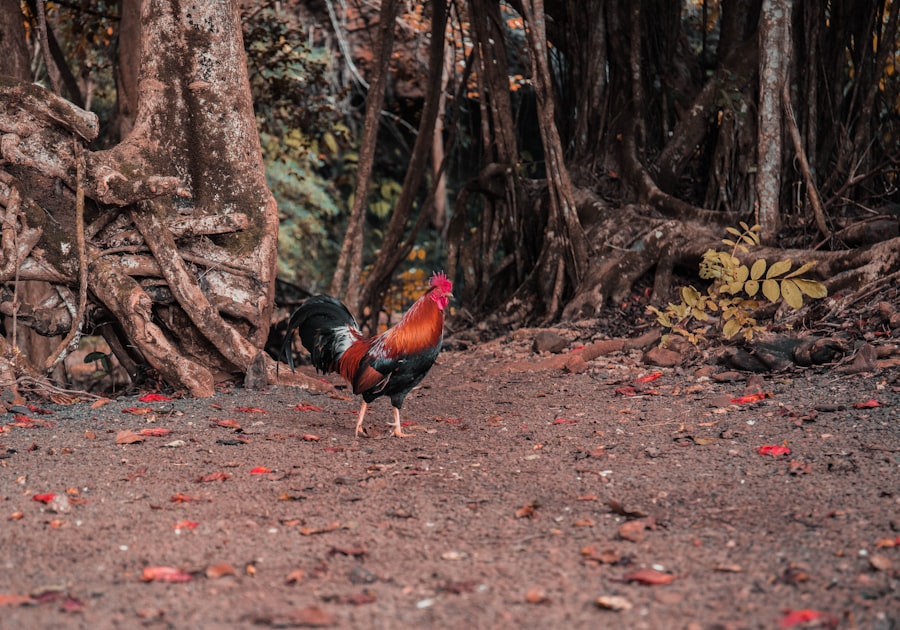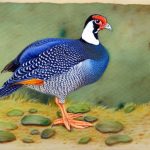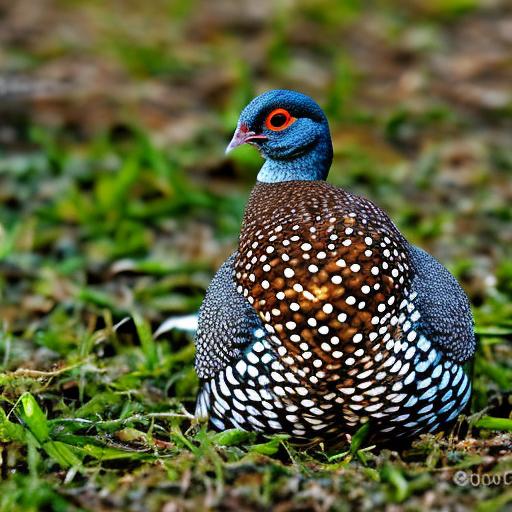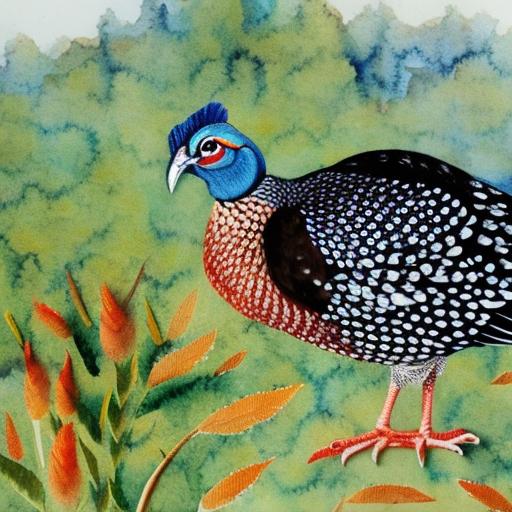Guinea fowl breeding is a popular practice among farmers and homesteaders due to the many benefits these birds provide. Guinea fowl are known for their pest control abilities, as they consume large quantities of insects, making them a valuable addition to any farm or garden. Additionally, guinea fowl are prized for their flavorful and lean meat, making them a popular choice for those looking to raise their own poultry for consumption. Breeding guinea fowl can be a rewarding experience, but it requires careful planning and attention to the birds’ specific needs.
When considering breeding guinea fowl, it’s important to understand the birds’ natural behaviors and breeding patterns. Guinea fowl are social birds that thrive in small flocks, so it’s best to keep at least a few birds together for optimal breeding success. Additionally, guinea fowl are known for their loud calls and can be quite vocal, so it’s important to consider the noise factor when planning to breed these birds. Overall, breeding guinea fowl can be a fulfilling endeavor for those looking to raise these unique and beneficial birds.
Table of Contents
Key Takeaways
- Guinea fowl breeding is a rewarding and relatively low-maintenance endeavor for poultry enthusiasts.
- Guinea fowl reach sexual maturity at around 6-8 months of age, with males maturing slightly earlier than females.
- Breeding season for guinea fowl typically occurs in the spring and early summer months.
- Courtship and mating behavior in guinea fowl involves elaborate displays and vocalizations to attract a mate.
- Guinea fowl hens are responsible for nesting and incubating the eggs, which takes approximately 26-28 days.
Age of Sexual Maturity in Guinea Fowl
Guinea fowl reach sexual maturity at different ages depending on their breed and individual development. Typically, guinea fowl reach sexual maturity between 16 and 32 weeks of age, with males maturing slightly earlier than females. It’s important to note that guinea fowl can be sexually active before they reach full maturity, so it’s essential to monitor their behavior and separate young birds if necessary to prevent early breeding. Additionally, providing a balanced diet and proper living conditions can help ensure that guinea fowl reach sexual maturity at the appropriate age.
Breeding guinea fowl before they have reached sexual maturity can lead to health issues and complications for both the birds and their offspring. It’s crucial to allow guinea fowl to fully mature before attempting to breed them to ensure the health and well-being of the birds and their future chicks. By monitoring the birds’ development and providing a suitable environment, breeders can help guinea fowl reach sexual maturity at the right age, setting the stage for successful breeding.
Breeding Season for Guinea Fowl
Guinea fowl have a specific breeding season that is influenced by environmental factors such as daylight length and temperature. In general, guinea fowl begin breeding in the spring when the days start to lengthen and the weather becomes warmer. The breeding season typically lasts from spring through early summer, with peak breeding activity occurring during this time. It’s important for breeders to be aware of the natural breeding season for guinea fowl and plan their breeding efforts accordingly.
Understanding the breeding season for guinea fowl is essential for successful breeding outcomes. By timing breeding efforts to coincide with the natural breeding season, breeders can increase the likelihood of successful mating and egg production. Additionally, being aware of the breeding season can help breeders anticipate when to expect new arrivals and plan for the care and management of guinea fowl chicks. Overall, being attuned to the natural breeding season of guinea fowl is key to successful breeding and raising healthy chicks.
Courtship and Mating Behavior
Guinea fowl have unique courtship and mating behaviors that are important for breeders to understand when attempting to breed these birds. During courtship, male guinea fowl will display elaborate behaviors such as strutting, puffing up their feathers, and vocalizing to attract females. The males will also engage in “tidbitting,” where they offer food to the females as part of their courtship display. Once a female has chosen a mate, the pair will engage in mating behavior, which involves the male mounting the female and copulating.
Understanding guinea fowl courtship and mating behavior is crucial for successful breeding. By observing these behaviors, breeders can determine which birds are forming pairs and monitor mating activity within the flock. Additionally, providing a suitable environment that allows for natural courtship behaviors can help encourage successful mating among guinea fowl. Overall, being familiar with guinea fowl courtship and mating behavior is essential for breeders looking to successfully breed these birds.
Nesting and Incubation
After mating, female guinea fowl will seek out a suitable nesting site to lay their eggs. Guinea fowl are known for their secretive nesting behavior, often choosing hidden or secluded locations to build their nests. Once a nest site is chosen, the female will lay a clutch of eggs over several days before beginning incubation. Guinea fowl eggs typically take around 26-28 days to hatch, with the female diligently tending to her eggs during this time.
Providing suitable nesting sites and conditions is crucial for successful egg laying and incubation among guinea fowl. Breeders should ensure that nesting areas are secure and protected from predators, as well as providing nesting materials such as straw or grass for the females to build their nests. Additionally, monitoring nesting behavior and egg production can help breeders anticipate when new chicks will hatch and prepare for their arrival. Overall, understanding guinea fowl nesting and incubation behaviors is essential for successful breeding outcomes.
Caring for Guinea Fowl Chicks

Once guinea fowl chicks hatch, they require careful attention and care to ensure their health and well-being. Chicks should be kept in a warm and secure brooding area with access to food and water. Providing a balanced chick starter feed with added protein can help support healthy growth and development in young guinea fowl. Additionally, monitoring the chicks for signs of illness or distress is crucial for early intervention and treatment if necessary.
As guinea fowl chicks grow, they will gradually transition to a diet similar to adult guinea fowl, consisting of grains, seeds, insects, and vegetation. It’s important to provide a suitable environment that allows young guinea fowl to explore and develop their natural behaviors while also protecting them from predators. By providing proper care and attention to guinea fowl chicks, breeders can help ensure that the young birds grow into healthy adults that contribute to the flock.
Conclusion and Tips for Breeding Guinea Fowl
Breeding guinea fowl can be a rewarding experience for those looking to raise these unique and beneficial birds. By understanding the birds’ natural behaviors and breeding patterns, breeders can increase the likelihood of successful mating and egg production. Providing suitable nesting sites and conditions is crucial for successful egg laying and incubation among guinea fowl.
When caring for guinea fowl chicks, it’s important to provide a warm and secure brooding area with access to food and water. Monitoring the chicks for signs of illness or distress is crucial for early intervention and treatment if necessary. Overall, by being attentive to the needs of guinea fowl throughout the breeding process, breeders can raise healthy birds that contribute to pest control efforts and provide flavorful meat for consumption.
Looking to learn more about when guinea fowl start breeding? Check out this informative article on PoultryWizard for expert insights and tips on understanding the breeding behavior of guinea fowl. Understanding the breeding patterns of these unique birds is essential for anyone looking to raise them, and this article provides valuable information to help you navigate the process.
FAQs
What age do guinea fowl start breeding?
Guinea fowl typically start breeding when they are around 8-10 months old. However, some may not start breeding until they are a year old.
What time of year do guinea fowl start breeding?
Guinea fowl are seasonal breeders and typically start breeding in the spring, when the days are longer and the weather is warmer.
How can you tell if guinea fowl are ready to breed?
You can tell if guinea fowl are ready to breed by observing their behavior. Males will display aggressive behavior towards each other and will start to court the females by puffing up their feathers and making a “buck-wheat” call. Females will also start to lay eggs, indicating that they are ready to breed.
How long is the breeding season for guinea fowl?
The breeding season for guinea fowl typically lasts from spring to early summer, although it can vary depending on the specific climate and conditions.
How many eggs do guinea fowl lay during the breeding season?
Guinea fowl can lay anywhere from 30 to 60 eggs during the breeding season, with each female typically laying one egg every other day.
Meet Walter, the feathered-friend fanatic of Florida! Nestled in the sunshine state, Walter struts through life with his feathered companions, clucking his way to happiness. With a coop that’s fancier than a five-star hotel, he’s the Don Juan of the chicken world. When he’s not teaching his hens to do the cha-cha, you’ll find him in a heated debate with his prized rooster, Sir Clucks-a-Lot. Walter’s poultry passion is no yolk; he’s the sunny-side-up guy you never knew you needed in your flock of friends!







